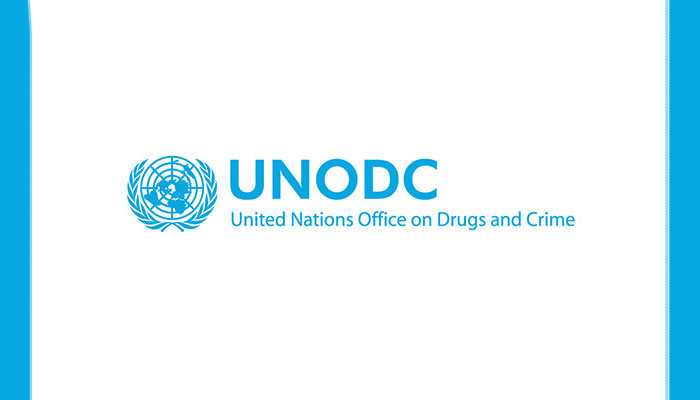Health dept to screen all inmates of Sindh’s 22 prisons for HIV, TB and hepatitis B and C
In collaboration with United Nations Office on Drugs and Crime (UNODC), the Sindh health department will screen all the inmates of 22 prisons of the province for HIV, tuberculosis and hepatitis B and C from February 2022, after it emerged that no data was available about the exact number of prisoners suffering from these diseases, officials said on Friday.
Following a meeting with IG Prisons Kazi Nazeer Ahmed, which was also attended by UNODC representative in Sindh Dr Sabeen Khan, CDC Wing official Dr Abid Ali, Senior Superintendent Central Prison Karachi Muhammad Hasan Sahito and other officials, health department officials said it had been decided to ascertain the data of prisoners suffering from different diseases and to arrange appropriate treatment for them within the jails.
The prisons department had recalled all the patients from different public and private health facilities in Karachi a couple of days ago after it emerged that some high-profile and influential prisoners were being provided the liberty to enjoy a luxurious life at those so-called health facilities, while needy and deserving patients were living a miserable life without treatment inside their jail cells.
“At a meeting with the IG prisons, we have decided to screen all the inmates of 22 prisons in the province for HIV, tuberculosis and hepatitis B and C so that the actual number of prisoners suffering from these diseases could be ascertained. Only after getting the accurate data, we would be able to arrange treatment for these prisoners within the prisons or any other public health facilities,” Deputy Director General CDC Wing Dr Ershad Kazmi told The News on Friday.
He said they had screened most of the inmates of Central and Malir prisons for HIV, but they lacked the accurate data of prisoners infected with HIV, TB and hepatitis B and C in other prisons of Sindh.
“We only screen a patient for HIV, TB or hepatitis B and C if we see any symptoms in a prisoner, but we have not screened the entire population of Sindh’s prisons,” Dr Kazmi conceded and added that for the first time, they were producing screening kits locally and launching an extensive campaign to find out the actual number of prisoners.
He shared that they would launch the screening process from the divisional headquarter jails, and ultimately reach out to each and every prisoner in Sindh jails. After knowing about the patients, appropriate treatment would be arranged for them.
To a query, he said they would also prepare and provide a Prison Management Information System (PMIS) in collaboration with UNODC, and its pilot project would be launched in Central and Malir prisons in Karachi.
“This information would be later extended to all the prisons in Sindh. This would help us to track the HIV, TB and hepatitis B and C patients even after their release from the jails. At the moment, most of the prisoners with HIV or other infectious diseases don’t continue their treatment after getting released from the jails.”
Responding to another query, Dr Kazmi said they regularly organise lectures and provide literature to jail inmates for prevention from infectious diseases, especially for the prevention of HIV, but more efforts were required in this regard.
-
 King Hospitalized In Spain, Royal Family Confirms
King Hospitalized In Spain, Royal Family Confirms -
 Japan Launches AI Robot Monk To Offer Spiritual Guidance
Japan Launches AI Robot Monk To Offer Spiritual Guidance -
 Japan Plans Missile Deployment Near Taiwan By 2031 Amid Growing Regional Tensions
Japan Plans Missile Deployment Near Taiwan By 2031 Amid Growing Regional Tensions -
 Meghan Markle, Prince Harry Spark Reactions With Latest Announcement
Meghan Markle, Prince Harry Spark Reactions With Latest Announcement -
 Kate Hudson Reflects On Handling Award Season With No Expectations
Kate Hudson Reflects On Handling Award Season With No Expectations -
 6 Celebrities Who Have Been Vocal About Anxiety And 'panic Attacks'
6 Celebrities Who Have Been Vocal About Anxiety And 'panic Attacks' -
 Is This The Future Of Train Travel? Robot Dogs, Drones Are Redefining Public Transit Safety Through China’s New Metro Station Deployment
Is This The Future Of Train Travel? Robot Dogs, Drones Are Redefining Public Transit Safety Through China’s New Metro Station Deployment -
 Sarah Ferguson Seeks Hollywood Backing As Epstein Files Resurface
Sarah Ferguson Seeks Hollywood Backing As Epstein Files Resurface -
 China’s AI Milestone: ByteDance’s Doubao Chatbot Hits 100M Users During Lunar New Year
China’s AI Milestone: ByteDance’s Doubao Chatbot Hits 100M Users During Lunar New Year -
 Think You Know ChatGPT? Here Are 5 AI Levels You’ve Never Seen
Think You Know ChatGPT? Here Are 5 AI Levels You’ve Never Seen -
 Bitcoin Bounces From $62,000 As On-chain Metrics Signal Prolonged Weakness: Here Is Everything To Know
Bitcoin Bounces From $62,000 As On-chain Metrics Signal Prolonged Weakness: Here Is Everything To Know -
 Elon Musk Teases Official Grok CLI For Developers As AI Rivalry With Anthropic Heats Up
Elon Musk Teases Official Grok CLI For Developers As AI Rivalry With Anthropic Heats Up -
 Jennifer Aniston Ready To Walk Down The Aisle Again?
Jennifer Aniston Ready To Walk Down The Aisle Again? -
 Sarah Ferguson’s Plan Now That Andrew Is Thrown Into The Fire: ‘She’s Not Certain She’ll Come Out The Other Side’
Sarah Ferguson’s Plan Now That Andrew Is Thrown Into The Fire: ‘She’s Not Certain She’ll Come Out The Other Side’ -
 ‘The AI Doc’: What AI Leaders Told Daniel Roher Will Keep You Up At Night
‘The AI Doc’: What AI Leaders Told Daniel Roher Will Keep You Up At Night -
 Sarah Ferguson In Hiding As Arrest Fears Grow After Andrew Was Taken Into Custody
Sarah Ferguson In Hiding As Arrest Fears Grow After Andrew Was Taken Into Custody




